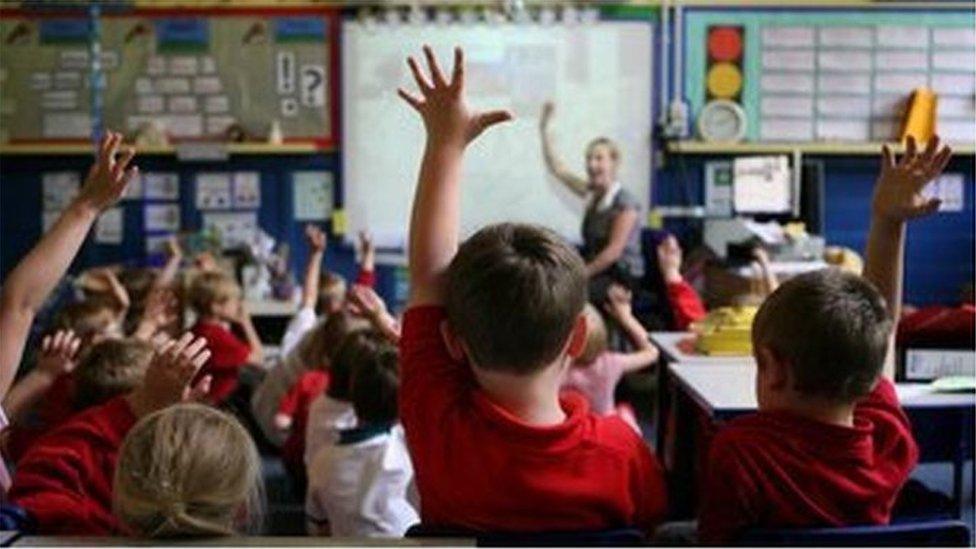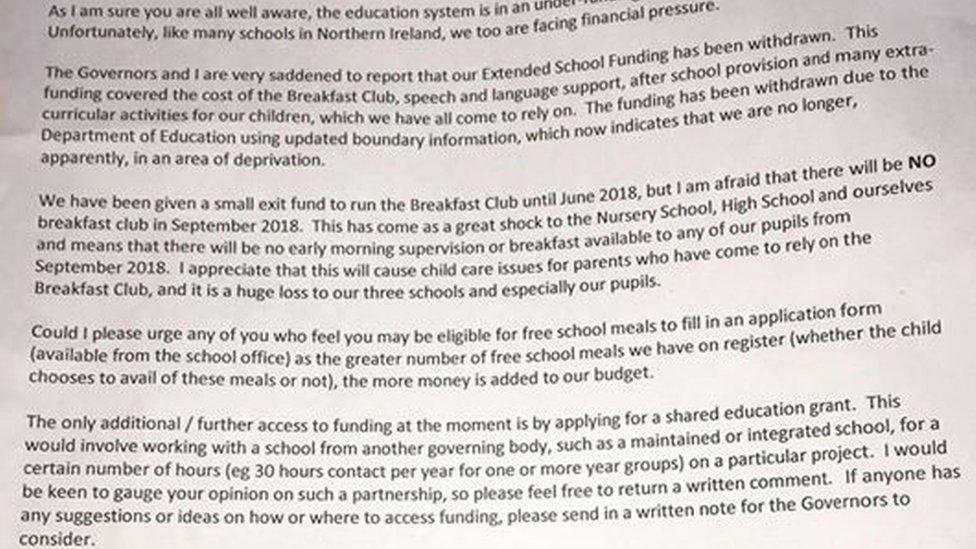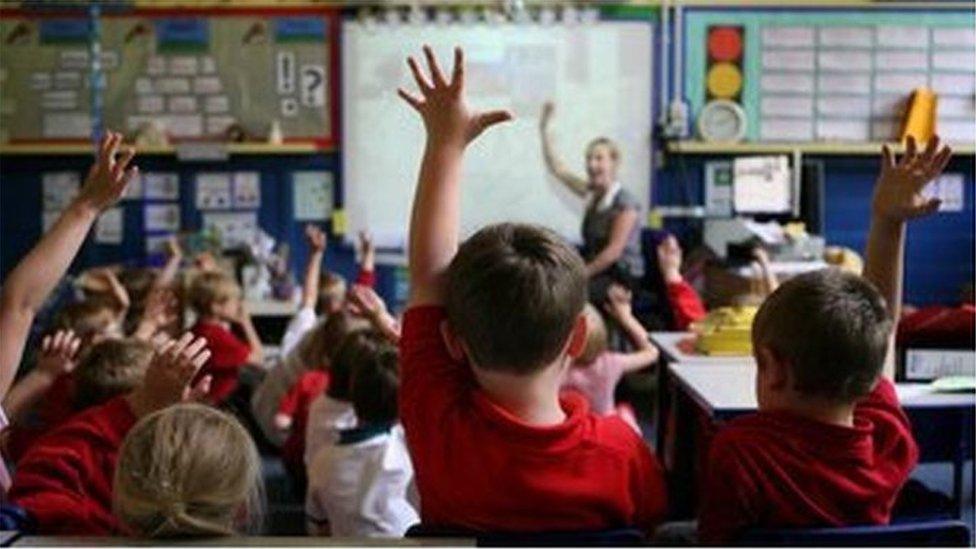More than 60 NI schools lose funding to run breakfast clubs
- Published
- comments

More than 60 schools in Northern Ireland have lost funding to run schemes for disadvantaged children in 2018/19.
The money helps to run breakfast and homework clubs and parenting support.
The Department of Education (DE) said the 63 schools no longer met the extended schools programme's criteria.
It is now using an updated measure of deprivation, external, which it said represents "a more up-to-date and accurate picture of deprivation" across NI.
The extended schools scheme, which was set up in 2006, gives schools in relatively disadvantaged areas some extra money.
In order for schools to qualify, they must reach certain criteria - one of which is having at least 37% of pupils entitled to free school meals.
The department also uses the Northern Ireland multiple deprivation measure, introduced by the Northern Ireland Statistics and Research Agency (Nisra) in November 2017.

The letter from Kilkeel Primary School said staff appreciated the loss of the breakfast club would cause childcare issues for some parents
It replaced an outdated measure from 2010, which had previously been used to determine which schools were eligible.
The department said that as a result of this change, there had been an impact on some previously qualifying schools, which discovered they would not be able to get the financial support for 2018/19.
'We feel bewildered'
Kilkeel Primary School in County Down is one of the schools that has been told it must exit the scheme.
In a letter sent to parents last week - which has been seen by BBC News NI - the school said the news had come as a "great shock" and that there would be no breakfast club in the new school term.
Cath Hanna, who has two children who attend the school and use the breakfast club, said they were "devastated" by the decision.
"They're really upset, they just don't understand - we just got a letter out of nowhere. It's not the school's fault, but the club really set the kids up for the day," she said.
"We didn't get a lot of warning, we just feel bewildered.
"Noah is only in P1. When he moved from nursery he didn't know a lot of kids but the breakfast club meant there were more kids he could get to know."
Ms Hanna is starting her own business and said the lack of a place to take her children in the morning would affect her work.
"My plan was to drop them at the breakfast club and collect them when the after-school club was over, but now I can't do that," she added.

Foyle College in Derry
Patrick Allen, principal of Foyle College in Londonderry, said he was notified just days before the new financial year that his school would lose £22,000 from its budget.
"This is about so much more than just the breakfast club," he said.
"We used our funding last year to operate an accelerated reading programme to support pupil literacy, provided direct support for Key Stage 3 literacy and numeracy and we were also looking at the transfer from primary to secondary school."
Mr Allen said the money also supported STEM, technology and homework clubs, peer tutoring initiatives and helped to finance additional bus services.
"The bottom line is we have 27% of pupils from deprived areas. We were simply told we did not meet the criteria anymore," he added.
The Derry headmaster said local schools were may be being penalised "because of the fantastic job the schools across the city do in terms of pupil attainment from deprived areas."
He said he had written to the department but had received a very "unsatisfactory response."
"This is part of a much bigger issue and that is the whole education budget," he said.
'Disappointing'
While the education department acknowledged the outcome of the process would be "disappointing" for some schools, it said there was a continuing need to focus educational resources on schools that could demonstrate the greatest degree of need.
Schools that have lost funding for next year have received a small so-called "exit sum" to allow them to continue their clubs until the end of June.
DE also said 43 schools that had not been eligible for the scheme in 2017/18 were able to get funding for 2018/19, and that a list of all schools eligible for the programme would soon be published on its website.
Last June, the finance director at the Department of Education warned school principals that there could be cuts to funding in the extended schools programme.
- Published23 June 2017

- Published14 June 2017

- Published27 April 2017
